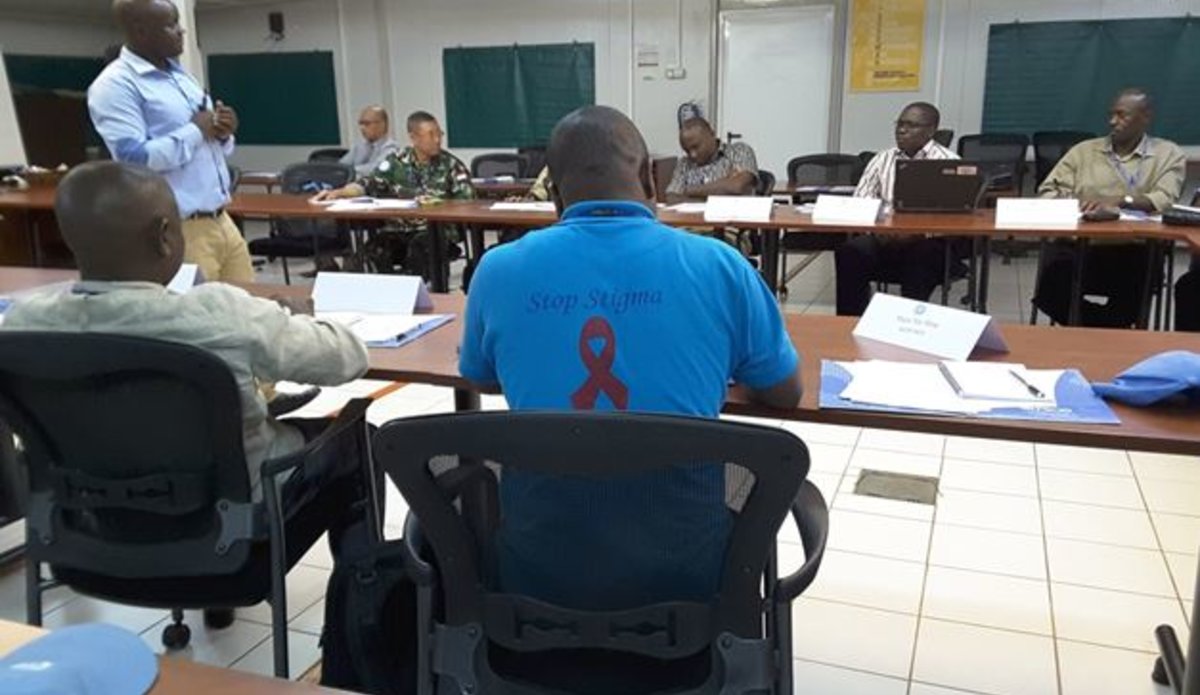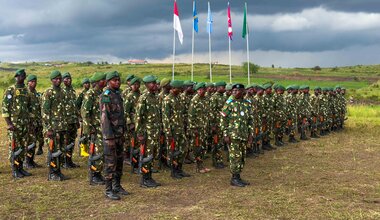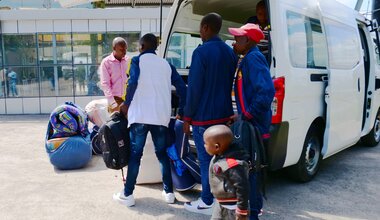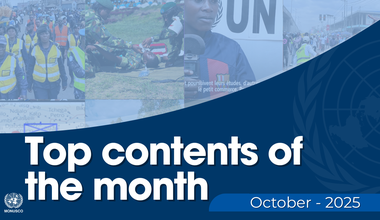Workshop to train HIV Counselors ends in Uganda
Entebbe, 18 March, 2016 – From 15 to 17 March, the United Nations Regional Service Centre in the Ugandan Central Regional town of Entebbe, opened its doors to some 15 workshop participants who received counselling training and education on HIV and AIDS.
Drawn from some Sections of MONUSCO, participants included medical Doctors, nurses, medical laboratory technicians, and HIV and AIDS Counselors. The organizers of the workshop said that the training was aimed at providing participants with more knowledge and skills on how to render high quality counseling services to their clients.
For three straight days, participants were drilled on facilitating behaviour change in people living with HIV as well as in those who are not living with it. The trainees were also given lessons on effective counselling methods to enable them to be able to provide psychosocial support to more people. The importance of orientating people living with HIV to referral centres where they can obtain more social and psychological support as well as treatment and care was also stressed during the training.
The HIV/AIDS and Medical Sections that are providing the training have said that 40 counselors would be trained in two separate workshops in English and French languages. The aim of the training, they further reveal, is to increase the production and provision of high quality HIV counseling services through training of service providers.
Identifying some of the major barriers that hinder effective HIV prevention, the workshop facilitators said that discriminating people living with HIV is a big hindrance to the fight against HIV. However, what proves more challenging to these people is how they are treated by individuals and communities. This behaviour, they said, is one of the key barriers that are stopping people from seeking help. For this reason, the HIV/AIDS Section has been sensitizing people and creating awareness on the negative effects of HIV and AIDS-related discrimination.
At the close of the training, it was quite revealing that MONUSCO believes in empowering staffs to know their HIV status, which is also helping them to be aware of the risk that goes along with negative behaviour. This also shows why behaviour change communication process is important if greater impact has to be made in the fight against HIV as it improves the lives of individuals living with HIV.
Participants who were attending the HIV counseling training workshop for the first time expressed appreciation to MONUSCO Leadership for facilitating the organization of the workshop. One of them said that she was confidence that the knowledge gained during the workshop will help her to render better services to her clients.
By Joseph Tabung Banah
 UN
UN United Nations Peacekeeping
United Nations Peacekeeping






